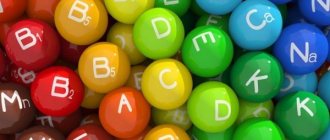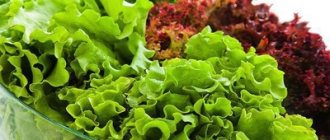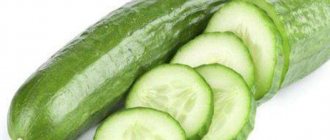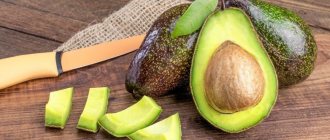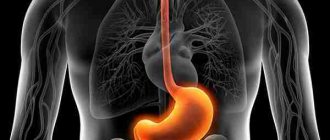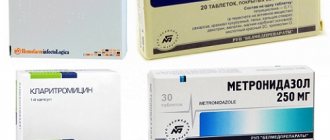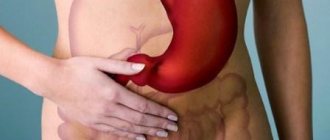- September 4, 2018
- Gastroenterology
- Nadezhda Devlyashova
With gastritis, along with nausea and heartburn, pain is one of the main symptoms. But discomfort in the abdomen can be a sign of other problems and pathologies that arise in the gastrointestinal tract. What pains with gastritis indicate this particular disease? How to distinguish these manifestations from signs of other ailments? Let us consider in more detail the nature of the pain syndrome specifically with gastritis.
Gastritis pain: description
The walls of the mucous membrane, being in the process of constant inflammation, indicate the presence of chronic gastritis. In this case, the secretion of gastric juice most often decreases, as does gastric acidity. Increased secretion often indicates the superficial nature of gastritis, when there is no gastric exhaustion. This is usually observed in young men; signs include heaviness in the stomach, heartburn, and belching. It is thanks to the way the stomach hurts with gastritis, as well as the nature of the painful sensations, that this disease can be distinguished from hepatic colic. With gallstone disease, for example, the pain occurs sharply; with gastritis, it increases for about ten minutes or more before reaching its peak. The attenuation of unpleasant sensations also gradually disappears. In addition, gastritis is accompanied by the following symptoms:
- nausea, vomiting;
- distension of the stomach, pressure in its area;
- manifestation of heartburn;
- aching, dull pain;
- External examination of the abdomen causes increased, exacerbation of pain;
- There is an unusual taste in the mouth.
We can definitely say that no specialist will make a diagnosis solely on the basis of examination and complaints of the patient; additional research is required.
Who has a stomach ache?
Statistics show that in the Russian Federation, 85% of the population has signs of gastritis. The most common people who suffer from stomach pain are:
- with a disrupted diet (long breaks in eating, overeating, starvation diets);
- addicted to fast food, fatty meat dishes, spicy seasonings, coffee lovers;
- alcoholics and heavy smokers.
A special group of adults are those who are afraid to see a doctor and prefer to independently take medications recommended by a pharmacist, neighbors, or friends. As a result of long-term use of drugs for headaches, for the treatment of joints containing salicylic acid, non-steroidal drugs, gastritis occurs.
At the same time, the stomach cannot withstand the negative combined effects of chemical irritants. How the stomach hurts with gastritis is well known to emotional and nervous patients who do not know how to deal with stress, suffer from insomnia, and changes in blood pressure.
Pain in the stomach (gastralgia) occurs not only with gastritis, but also accompanies gastroptosis (prolapse of the organ), cardiospasm of the esophagus, diseases of the liver, intestines and pancreas.
The digestive process is so connected with the functioning of the entire system that a disease of one of the organs causes a malfunction in the others, and inflammation quickly spreads. In 75% of patients, gastritis does not occur in isolation.
Alternating a starvation diet and subsequent overeating disrupts the functioning of the stomach and leads to inflammation
Hypertrophic and atrophic gastritis
Chronic gastritis is divided into two types: atrophic - this condition is already considered precancerous, and hypertrophic, when the disease is associated with peptic ulcer disease. In the latter case, the stomach is constantly irritated, as with an ulcer. What kind of pain in chronic gastritis occurs in this case? Particular attention is paid to hunger pains, they can be early, late, characteristic of duodenal ulcers and gastroduodenitis. There is a seasonal change in pain and discomfort, when complaints become more frequent. Hypertrophic gastritis is often characterized by spastic pain.
If cutting, sharp pain occurs, you should urgently seek medical help. Such symptoms may suggest the formation of a stomach ulcer.
With atrophic gastritis, the pain is most often distensional, dull, aching, monotonous, and it is difficult to determine its precise localization.
How to quickly relieve pain
The following medications will help relieve pain:
Antispasmodics (No-shpa, Papaverine, Buscopan). By relaxing the muscles of the gastric wall, irritation of its receptors will stop and the pain will subside.- Antacids that reduce acidity (Gastal, Gaviscon, Almagel). The drugs are used if a diagnosis of hyperacid gastritis is established; with low acidity, they can aggravate the disorders. Almagel A, which contains a local anesthetic, is especially effective in relieving pain. At home, it is permissible to take a weak solution of soda (1 tablespoon per liter of water), but only once if there are no pharmaceuticals at hand.
- Antisecretory drugs (Omeprazole, Nexium, Nolpaza, Ranitidine) are also used for hyperacid conditions. The effect of these medications appears slowly, but it is for this reason that they should be taken as early as possible.
- Enzymes (Pancreatin, Mezim, Creon) are needed to reduce pain in hypoacid or atrophic gastritis. They also give a delayed effect. However, it is worth considering that acute pain syndrome is not typical for inflammation with low acidity.
Autoimmune gastritis
Let’s take a closer look at what hurts with gastritis and what symptoms appear in this case. Autoimmune gastritis is a rather rare disease. In all gastric sections, mucosal cells die in large quantities. This type of illness is diagnosed in isolated cases, but despite this, treatment must be approached with special attention. Autoimmune inflammation leads to atrophy of the mucous membrane, as a result of which acidity sharply decreases. In this case, the pain is dull, bursting in nature, occurs after eating, and belching often appears with a putrid, unpleasant odor. The following symptoms occur:
- flatulence;
- diarrhea;
- nausea, vomiting;
- decreased appetite;
- aversion to certain foods (usually protein foods);
- heartburn;
- gurgling in the stomach;
- unpleasant taste;
- rumbling;
- constipation, diarrhea.
Eating food for such patients becomes a whole ordeal; all the listed symptoms begin to bother you immediately after some time after eating. The amount of hydrochloric acid in the stomach is not enough, and therefore complete digestion of food is impaired, the food bolus remains there for a long time, rotting processes begin, and so bad breath occurs.
Causes of an attack
The mucous membrane does not have pain receptors; any discomfort in the stomach appears on the walls in the form of sensitivity of muscle fibers. Symptoms of gastritis most clearly manifest themselves in the hypochondrium on the left side; in the acute phase of gastric pathology, cramping pain of a moderate or intense nature is formed. In this case, spasm of the muscles of the walls occurs 1-1.5 hours after eating.
Expansion of the walls of the esophagus is the cause of distensional pain; it is not intense, manifests itself as pressure or fullness, and is aching or dull in nature. This indicates chronic gastritis.
Frequent causes of an attack of gastritis:
- non-compliance with diet, use of low-quality products;
- chewing food insufficiently;
- smoking and alcohol abuse;
- long-term use of potent drugs;
- hazardous working conditions accompanied by regular contact with chemicals;
- stress, depression.
A significant part of recurrent gastric pathologies is caused by Helicobacter pylori infection. The development of the disease is influenced by internal factors - chronic and inflammatory diseases, anemia.
Helicobacter gastritis
This type of disease is caused by Helicobacter. It occurs most often with high acidity, the mucous membrane is hypertrophied. What pain and symptoms of gastritis occur in this case? The painful sensations are aching, dull, sometimes turning into a cramping, stabbing character. During periods of exacerbation, spastic pain appears along the intestines. At the same time, the patient most often experiences the following symptoms:
- heartburn;
- sour belching;
- unpleasant taste;
- constipation;
- nausea and vomiting.
Relieving an acute attack using folk methods
The first question that people have during an attack of gastritis is how to relieve pain? But in fact, the task of primary importance is to eliminate the cause of the irritation. When a food or alcohol reaction is suspected, the stomach should be flushed immediately with a weak saline solution at room temperature. This should be done immediately, after the anesthetic has taken effect and the patient is able to lie on his side without moving.
Quick ways to relieve pain from traditional medicine:
- Give the patient the juice of a large potato, grated with the skin and squeezed through several layers of gauze.
- Boil half a glass of rice in 1 liter of water until tender and give the patient the strained liquid to drink.
- After an attack, during the day, you can drink decoctions of the following natural ingredients with enveloping properties: chamomile, flax seeds, St. John's wort, rose hips, plantain.
High acidity is well regulated by a neutralizing soda solution (0.5 teaspoon of soda per 0.5 glass of water), fresh honey diluted in warm water, and mineral water.
You cannot eat any food for 12 hours after an attack, but you can drink weak tea in small portions.
Where does it hurt with gastritis?
One of the important diagnostic signs is the localization of unpleasant pain. A typical place of pain for gastritis is the epigastric region, the epigastrium. The stomach itself is located in the left hypochondrium. Very often, patients complain of pain in this place, as well as in the area of the xiphoid process.
The stage and form of the disease determine what kind of pain with gastritis may occur and at what time it will appear. The most common complaints are those that arise while eating; they can appear about twenty minutes after a meal and are localized in the abdominal area. The reason may be poor nutrition, consumption of foods from the prohibited (diet) list. If a diet violation occurs, pain can disturb the patient for up to two hours.
In the presence of gastritis, pain occurs under severe stress, during sudden emotional swings, as well as after strong tea, coffee on an empty stomach, and after smoking.
Sometimes pain due to gastritis can radiate to the back area; this symptom is often confused with osteochondrosis. This can also signal acute cholecystitis, perforated ulcer, or hepatic colic.
Gastritis in severe stages causes sharp, piercing pain that radiates to the chest area.
Most often, pain occurs during periods of exacerbation of the disease. They appear after eating, but can bother you throughout the day. Chronic gastritis, depending on the duration of periods of exacerbation, can show its symptoms from a week to a month.
It is very important: you should not diagnose yourself, much less prescribe treatment. Gastritis has many types, and incorrect treatment tactics will only worsen the situation. At the first unpleasant symptoms, be sure to contact a doctor.
Customs on food
If you have already had an attack of gastritis at least once, what should you do to prevent it from happening again? The answer is obvious: treat the underlying disease under the supervision of your attending physician. And one more thing: since you happen to get gastritis, then throughout your life you need to tune in to an individual approach to nutrition. This is difficult in family life. But this diet is good for all family members. The healthier the food, the lower the risk of getting sick. What to avoid:
- From fried fatty meat and fish. Any dish cooked over a fire, baked in the oven, or steamed is no less tasty. And simply boiled. There is no need to take fatty pieces for this.
- From smoked meats, pickles, marinades. It's sad because there's nothing to replace it with. You just have to change your taste habits, giving preference to fresh meat and fish dishes, stewed vegetables.
- From too cold or, on the contrary, hot food and drinks. This is not difficult, and the taste is most harmonious when the dish is warm or at room temperature. The same okroshka or watermelon are good when they haven’t been in the refrigerator yet.
- From alcohol. For some people, even a few grams of alcohol is a direct path to an acute attack of gastritis. There are other pleasant drinks, the same mineral water. You should also be careful with juices; too sour ones will not work.
Overeating is also dangerous, and it is not for nothing that the Bible considers it a sin. Fractional nutrition at the rate of 200-250 grams per serving will prevent the occurrence of an attack of gastritis and will not force a sick, inflamed stomach to work for wear.
Differential diagnosis
When diagnosing gastritis, the doctor always conducts a differential diagnosis to rule out suspicions of other diseases. This must be done if the pain that arises in the abdomen radiates to the back or chest.
When collecting anamnesis, taking into account what pain is characteristic of gastritis, it is necessary to establish their connection with food intake. If discomfort is in no way related to this factor, functional impairment can be judged.
To determine the initial picture, the doctor examines the patient, studies the nature of the pain, palpates, takes into account the location of the pain, the size of the internal organs, and their condition. Next, you need to order laboratory tests, take tests, and samples of the mucous membrane. It is important to determine whether the cause of the disease is Helicobacter pylori, a bacterium that can infect a variety of areas of the stomach, causing gastritis.
The most effective methods for diagnosing gastritis are still gastroscopy and x-rays.
Acute exacerbation of gastritis when to consult a doctor
Acute gastritis (acute inflammation of the mucous membrane of the stomach walls) is one of the most common diseases in the practice of gastroenterologists. This is easy to explain if we consider the reasons for the development of this disease.
An acute attack of gastritis can begin even against the background of complete health, if the stomach has been negatively affected under the following circumstances:
- ingestion of excessively rough, hot, cold, spicy foods (especially if such exposure is observed regularly or constantly);
- a course of treatment with medications containing substances that irritate the gastric mucosa (for example, taking aspirin and other NSAIDs);
- bad habits (smoking, alcohol abuse); consumption of low-quality and/or contaminated food, etc.
Regardless of the causes of an attack of acute gastritis, this disease requires immediate diagnosis and treatment.
But regardless of the causes of acute gastritis, this disease requires immediate diagnosis and treatment. Without adequate therapy, this disease can create conditions for ulceration of the mucous membrane and further development of gastric ulcer, or become chronic.
Causes of constant epigastric pain
In most cases, pain in the abdominal area is caused by quite ordinary reasons, for example, emotional disorders, overeating or the flu. However, similar painful symptoms can be caused by more severe diseases. Only a doctor can clearly determine the cause of pain in the epigastric area.
Gastritis as a cause of constant epigastric pain
Gastritis provokes inflammatory processes in the gastric mucosa. Often the disease is infectious in nature, caused by the bacteria Helicobacter pylori.
Gastritis is characterized by aching and dull pain in the stomach, which can be either constant or intermittent. In this case, it appears immediately after eating food or if the patient is hungry. In addition, patients also note symptoms such as attacks of nausea; diarrhea or constipation; excessive gas production; belching; acidic taste in the mouth.
People with irritable bowel syndrome suffer from constant abdominal pain, cramping and bloating.
Gastric ulcer as a cause of constant epigastric pain
The disease stomach ulcer is chronic and often makes itself felt by pain that occurs after eating. Gastritis, constant stressful situations, the use of certain groups of medications, and other diseases of the endocrine system can provoke the development of ulcers. The symptoms of the disease are similar to those of gastritis.
Cancer as a cause of constant epigastric pain
At the initial stages of development, cancer is expressed in the form of loss of appetite, the appearance of aversion to meat products, and attacks of nausea. As for the final stages of tumor development, there is a general deterioration in health, weakness, and constant aching pain in the epigastric region.
Inflammatory bowel diseases (IBD) as a cause of persistent epigastric pain
As a rule, the feeling of discomfort or cramping disappears after a bowel movement. Unlike inflammatory diseases, IBS does not harm the intestines, although it causes great discomfort to the patient.
Stress and depression as a cause of constant epigastric pain
Constant stress can also be the cause of constant abdominal pain in the epigastric area. If a person develops depression, their chances of experiencing irritable bowel syndrome increase.
Treatment does not help constant epigastric pain
If your stomach hurts in the epigastrium, doctors can use two treatment methods - surgery or a conservative method. If drug treatment of pain in the epigastric region does not help, then surgical intervention (appendicitis, intestinal obstruction) must be performed to save life.
The most important thing is to visit a specialist on time. He will study the whole picture and prescribe the necessary treatment. If it hurts in the front of the abdomen, tests are taken and all the research is done. Based on this, a diagnosis is made and treatment is prescribed.
- https://nuz.uz/stati-partnerov/29033-noyushchaya-bol-v-zheludke.html
- https://studfile.net/preview/5779193/
Post Views: 138
Weight loss due to gastritis
Weight loss is one of the symptoms of gastritis or ulcers. To regain lost pounds and prevent further painful weight loss, you need to treat the underlying disease and also monitor your diet. You can drink herbal decoctions after studying the contraindications. Treatment should be carried out under the supervision of a physician.
Why does a person begin to lose weight sharply with gastritis?
With this disease, the gastric mucosa becomes inflamed, epithelial cells are damaged, so they cannot cope with their duties. The digestion process is disrupted. Because of this, a person lacks nutrients, his body suffers from a lack of proteins and carbohydrates, and his weight rapidly drops.
If a patient has a period of exacerbation of gastritis, he suffers from nausea and vomiting, diarrhea. Vomiting occurs repeatedly, in severe cases - up to 20 times. All the nutrients that the body needs are eliminated, leading to exhaustion and severe weight loss.
Weight loss is one of the symptoms of gastritis or ulcers
With atrophic gastritis, appetite is significantly reduced, the patient quickly becomes full, which over time can cause severe weight loss. And with other types of this disease, patients complain of decreased appetite. Sometimes there is a complete refusal to eat.
Those who have encountered the disease know that part of the treatment is dietary nutrition. Compliance with it is mandatory, otherwise there may be relapses of the disease. The patient is forced to give up fatty foods and not eat fried foods, i.e., he has to remove the usual high-calorie foods from the diet. This way, natural weight loss also occurs.
During exacerbations, the patient experiences severe pain, and during this time he cannot eat, so he rapidly loses weight. Refusal of food during exacerbations is justified; the self-regulation mechanism is activated here, but this is reflected in the patient’s weight. Psychological reasons also play a role. A patient with gastritis understands that he has pain after eating food, so he begins to refuse it. Due to the digestion of food, he experiences discomfort, and the body fights this in its own way: it eats less and loses weight.
What to do when losing weight with gastritis
The main emphasis is on the patient’s diet; he must adhere to certain rules and monitor the optimal ratio of proteins, fats and carbohydrates
The main emphasis is on the patient’s diet; he must adhere to certain rules and monitor the optimal ratio of proteins, fats and carbohydrates. The diet should be balanced so that the fat layer appears only in the right places, you should also review your daily routine, lead an active life and take a course of the necessary medications.
Not only food affects weight gain, proper planning of the day will also help normalize body weight and adjust incoming calories, distributing them to the right places.
Tips for losing weight with gastritis:
- avoid nervous disorders and stress, which can cause loss of appetite;
- After quitting smoking, a patient with gastritis can immediately recover. In order not to overdo it, you should properly adjust your diet;
- set the exact time for eating food, make it a rule to eat at the same time during the day4
- while eating, you should not watch TV, read a book or newspaper, so as not to overeat; in the first days after gastritis is detected, you should drink the maximum possible volume of water, in the subsequent days you should drink as much as possible
- https://www.neuro-ural.ru/patient/dictonary/ru/b/boli-v-zheludke.html
- https://zhivotpro.ru/bolezni/gastrit/obostrenie-gastrita-simptomy-i-osobennosti-patologicheskogo-sostoyaniya-cheloveka.html
- https://gastritinform.ru/tvoelechenie.ru/gastroenterologiya/simptomy-obostreniya-gastrita-diagnostika-lechenie.html
- https://gastritinform.ru/lechenieyazvy.ru/simptomy/simptomy-obostreniya-gastrita.html
- https://gastrox.ru/live/poterya-vesa-pri-gastrite.html
- https://gastrit.guru/pitanie/kak-nabrat-ves-pri-gastrite.html
- https://1zhkt.ru/gastrit/chem-snyat-bol-v-zheludke.html
- https://gastritinform.ru/aybolit.ru/zdravstvuyte/kak-pravilno-snyat-bol-pri-gastrite.html
Post Views: 666
How to prevent an attack from developing
To prevent an exacerbation from starting, the patient must reconsider his usual rhythm of life and follow simple rules:
- Eating healthy. Stop eating dry food, eat at regular intervals, choose portions that suit your individual needs, and give up junk food.
- To drink a lot of water. You need to take about two liters of fluid per day.
- Spend more time outdoors. A daily walk of at least an hour is recommended.
- Treat concomitant diseases in a timely manner.
- To live an active lifestyle. It is necessary to engage in physical education, various sports, and do exercises.
- Do not be nervous. Since stress plays an important role in the course of gastritis, treatment and the frequency of attacks, it is recommended to learn how to manage your mood, and if necessary, sedatives are allowed.
- Quit alcohol and smoking. These factors are provoking and have a very negative effect on the mucous membrane of the organ.
- As a preventive measure, in the presence of a chronic stage of the disease, it is necessary to contact a gastroenterologist once every six months to diagnose the condition of the digestive organ.
Gastritis in the acute stage responds well to treatment if you listen carefully to the doctor and follow his recommendations. When it comes to the chronic form, the disease in this case is in a “dormant” state, and an attack can begin at any time.
If the above conditions are met, it is possible to achieve long-term remission.
When the first symptoms of gastritis appear, be sure to consult a doctor. If pain and other manifestations come on suddenly and cause severe discomfort, call an ambulance. The doctor will tell you how to relieve pain and help stop the attack. Remember that a sick stomach often provokes concomitant diseases, for this reason you should never self-medicate.


